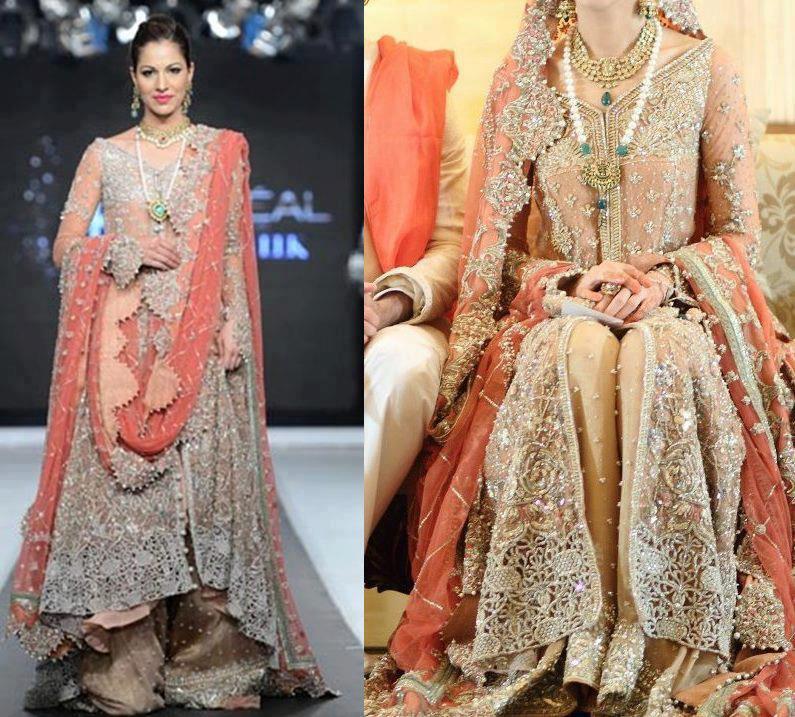Wedding attire varies a lot in Asia, for example in India they wear brightly coloured clothing with lots of gold jewellery but in Pakistan they wear far more traditional colours and styles. Tradition is everything in Asian communities, for India the gold represents wealth and good fortunes. In Pakistan they celebrate the Islamic religion rather than Buddhism or Hinduism; they’re also referred to as Muslims. Over 95% of Pakistan are Muslims, so they’re religion plays a huge part in traditional wedding attire.
Dresses for the sake of the religion still have to cover the brides body from the neck down, hands are allowed to be shown but no skin is to be visible on the arms or legs even when getting married. The only difference from their usual burka dresses is that the dresses are in fact white and the face is allowed to be fully shown. They do add subtle patterns to dresses and the shape of the dress can vary from fitting to trumpet style dresses that flare out at the bottom. You can also get dresses with ruffles on to give it more depth and creative flow. They usually make dresses out of cotton or satin, satin being a very popular choice among Muslim brides.
As for head wear brides wear a hijab, which is a covering for the brides head and hair. It’s like a turban but it is not restricted to the head, it is able to hang freely at the back too. Brides wear these, again, due to their religion and they can be altered to have beautiful patterns and designs on them. You can even add jewels and the like to the very front to jazz it up a little. You’re only limited in showing skin, the dress can still be unique to you as the bride. Pakistani bridal wear can be a tricky subject to talk about but it’s nothing out of the ordinary, they may be bound by their religion but that doesn’t make them any different from any other bride. As I said before, dresses for Asian brides can vary greatly; even with Pakistani brides.
You can also have a veil on top of your hijab; they come in various lengths and shapes but are usually made of the same material. Not all brides will wear a veil, or even the traditional hijab, as you can actually wear a hijab unwrapped over the head. You can only do this if you are able to cover your neck either with a decorative collar or a high collared dress. This is less restrictive and can help you keep cool on your wedding day, not to mention that it takes less time to prepare.
As the bride you will know exactly what you should be wearing, the Muslim community is a close one and they’re all there to help each other when it comes to wedding plans. You can purchase lots of different dresses online for reasonable prices that cater to you and your religion equally.

